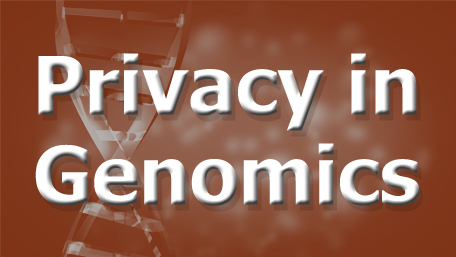
05/20/2021
Hot Topics of the Day are picked by experts to capture the latest information and publications on public health genomics and precision health for various diseases and health topics. Sources include published scientific literature, reviews, blogs and popular press articles.
Sign up MyPHGKB to receive the daily hot topic email alert.
Archived Hot Topics of the Day By Date
Contact Tracing for Covid-19 - A Digital Inoculation against Future Pandemics.
O'Connell James et al. The New England journal of medicine 2021 5
Efficacy of NVX-CoV2373 Covid-19 Vaccine against the B.1.351 Variant.
Shinde Vivek et al. The New England journal of medicine 2021 5 (20) 1899-1909
Efficacy of the ChAdOx1 nCoV-19 Covid-19 Vaccine against the B.1.351 Variant.
Madhi Shabir A et al. The New England journal of medicine 2021 3 (20) 1885-1898
What is Public Health Genomics? A Day in the Invisible Life of Public Health Genomics (an Encore)
MJ Khoury, CDC Blog Post, May 20, 2021

Privacy practices using genetic data from cell-free DNA aneuploidy screening
CM Parobek et al, Genetics in Medicine, May 19, 2021
ACMG SF v3.0 list for reporting of secondary findings in clinical exome and genome sequencing: a policy statement of the American College of Medical Genetics and Genomics (ACMG)
DT Miller et al, Genetics in Medicine, May 20, 2021
Recommendations for reporting of secondary findings in clinical exome and genome sequencing, 2021 update: a policy statement of the American College of Medical Genetics and Genomics (ACMG)
DT MIller et al, Genetics in Medicine, May 20, 2021
Disclaimer: Articles listed in Hot Topics of the Day are selected by Public Health Genomics Branch to provide current awareness of the scientific literature and news. Inclusion in the update does not necessarily represent the views of the Centers for Disease Control and Prevention nor does it imply endorsement of the article's methods or findings. CDC and DHHS assume no responsibility for the factual accuracy of the items presented. The selection, omission, or content of items does not imply any endorsement or other position taken by CDC or DHHS. Opinion, findings and conclusions expressed by the original authors of items included in the Clips, or persons quoted therein, are strictly their own and are in no way meant to represent the opinion or views of CDC or DHHS. References to publications, news sources, and non-CDC Websites are provided solely for informational purposes and do not imply endorsement by CDC or DHHS.
- Page last reviewed:Feb 1, 2024
- Page last updated:Apr 18, 2024
- Content source:






